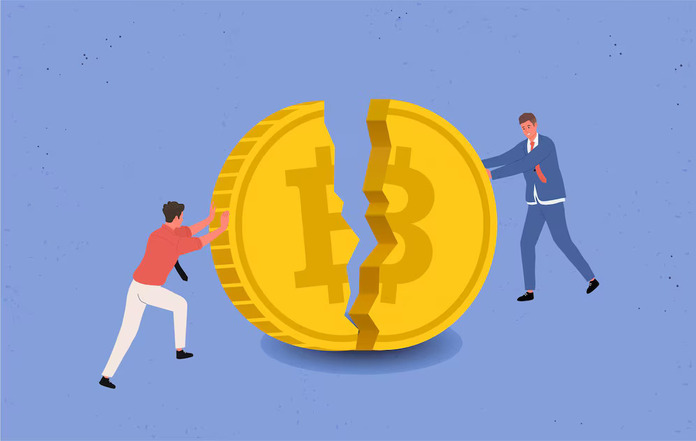Bitcoin’s Upcoming ‘Halving’: Here’s What You Should Know

Bitcoin’s forthcoming ‘halving’ is on the horizon, prompting a need-to-know exploration. Here’s a breakdown of what awaits:
What is Bitcoin Halving and Why Is it Significant?
Bitcoin “halving,” occurring approximately every four years, directly affects bitcoin production. Miners, utilizing specialized computers to solve complex mathematical puzzles, receive a fixed number of bitcoins as a reward upon completion.
As the name suggests, halving cuts this fixed income in half, thereby reducing the influx of new bitcoins into the market. Consequently, the supply of available coins grows more gradually, aligning with bitcoin’s fundamental characteristic of limited supply. With only 21 million bitcoins ever to exist and the majority already mined, scarcity becomes a defining feature.
The reduction in supply can potentially drive up bitcoin prices, assuming demand remains steady or increases relative to supply. However, predicting future price movements remains uncertain, as past performance does not guarantee future results.
How Frequently Does Halving Occur?
According to Bitcoin’s code, halving takes place after the creation of every 210,000 “blocks” during the mining process, roughly translating to a four-year interval. The next halving is anticipated to unfold imminently.
Will Halving Impact Bitcoin’s Price?
The impact on bitcoin’s price remains speculative. Historically, following previous halvings, bitcoin’s price experienced mixed short-term reactions, eventually surging significantly one year later. Nonetheless, market conditions beyond halving contribute to these fluctuations.
The current halving arrives on the heels of a bullish year for bitcoin, with prices doubling compared to the previous year. Factors such as the introduction of spot bitcoin ETFs and persistent demand may further influence bitcoin’s trajectory.
What About Miners?
Miners face the challenge of adapting to reduced rewards while managing operational costs. Efficiently prepared miners may weather the transition better, but struggling firms might encounter difficulties.
Consolidation within the mining industry is probable, a trend exacerbated by previous market downturns. Larger miners may expand operations, leveraging technological advancements for efficiency gains.
What About the Environment?
Bitcoin mining’s environmental impact stems largely from energy consumption. While recent trends indicate a shift towards cleaner energy sources, concerns persist regarding reliance on pollutive energy.
The looming halving might incentivize miners to seek cheaper, albeit less environmentally friendly, energy sources. Additionally, some firms may explore low-cost energy regions, potentially deploying inefficient mining rigs.
In essence, Bitcoin’s upcoming halving carries implications for its economy, environment, and industry landscape, yet its exact outcomes remain uncertain amidst the dynamic cryptoverse.
Featured Image: Freepik



